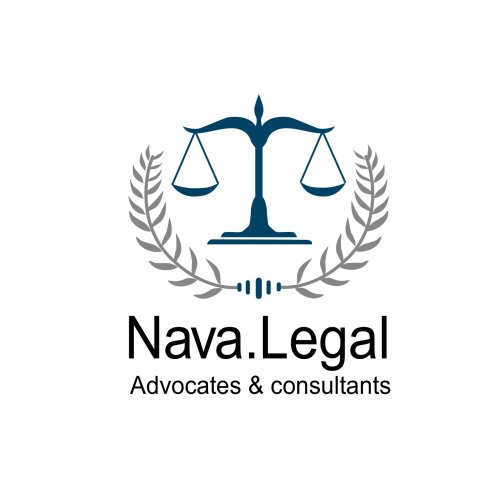Best Creditor Lawyers in Mumbai
Share your needs with us, get contacted by law firms.
Free. Takes 2 min.
List of the best lawyers in Mumbai, India
About Creditor Law in Mumbai, India
Creditor law in Mumbai, India, primarily deals with the rights and responsibilities of both creditors and debtors. The legal framework ensures that creditors have the means to recover dues while also ensuring that debtors' rights are protected. Mumbai, being a major financial hub, is governed by both national laws and local statutes that impact how creditors pursue debt recovery. Laws such as the Securitisation and Reconstruction of Financial Assets and Enforcement of Security Interest Act (SARFAESI), the Insolvency and Bankruptcy Code (IBC), and the Negotiable Instruments Act provide a structured approach to creditor-debtor relationships. Legal processes are designed to facilitate fair and lawful recovery of defaults, ensuring a balance between enforcement and protection against undue harassment.
Why You May Need a Lawyer
Engaging a lawyer with expertise in creditor law can be beneficial in several situations:
For creditors, legal advice becomes crucial when:
- Recovering overdue payments through legal actions.
- Understanding and enforcing security interests using SARFAESI or other legal means.
- Pursuing insolvency proceedings under the Insolvency and Bankruptcy Code.
For debtors, legal guidance is essential when:
- Contest legal actions initiated by creditors.
- Navigate insolvency proceedings to ensure fair treatment.
- Respond to notices or summons from creditors.
A lawyer can help both parties navigate the complex legal landscape, ensuring compliance with applicable laws and regulations.
Local Laws Overview
Mumbai's creditor laws are influenced by various national statutes and local regulations:
- Securitisation and Reconstruction of Financial Assets and Enforcement of Security Interest Act (SARFAESI): Allows banks and financial institutions to auction residential or commercial properties to recover loans.
- Insolvency and Bankruptcy Code (IBC): Provides a time-bound process for insolvency resolution of companies and individuals.
- Negotiable Instruments Act: Addresses issues related to cheque bouncing and provides a mechanism for the aggrieved party to recover dues.
- Maharashtra Cooperative Societies Act: Pertinent for issues involving credit societies in Mumbai.
These laws are intended to streamline the recovery of debts while providing safeguards against unfair practices.
Frequently Asked Questions
What is the SARFAESI Act, and how does it affect creditors in Mumbai?
The SARFAESI Act enables banks and financial institutions to auction properties to recover outstanding loans, thus offering a robust framework for creditors to enforce security without court intervention.
Can a creditor initiate insolvency proceedings against a debtor in Mumbai?
Yes, creditors can initiate proceedings under the Insolvency and Bankruptcy Code if a debtor defaults on payment. The Code provides a structured procedure for resolution.
What should a debtor in Mumbai do if served with a legal notice for debt recovery?
A debtor should immediately consult a legal professional to understand their rights and obligations, and prepare an appropriate response to the notice while maintaining open communication with the creditor.
How are cases of cheque bouncing handled in Mumbai?
Cheque bouncing is governed by the Negotiable Instruments Act, which stipulates that the aggrieved party can file a legal complaint to recover the due amount, which may also result in a criminal case against the drawer of the cheque.
What are the typical timeframes for debt recovery through legal means in Mumbai?
The timeframe varies depending on the complexity of the case and the specific legal route undertaken. Summary procedures under SARFAESI can be quicker, while regular litigation or insolvency cases may take longer.
Can a creditor seize assets without going to court in Mumbai?
Under the SARFAESI Act, financial institutions can directly seize secured assets without court intervention, provided due process is followed as per the regulations specified in the Act.
What recourse does a small business have if a creditor initiates legal action against it?
The small business should seek legal counsel to explore possible defenses and negotiate terms. They may also consider restructuring or filing under IBC if the situation demands.
Are there any protections for debtors against harassment from creditors?
Yes, debtors are protected from unfair practices under several consumer protection laws and regulations. They can file complaints with regulatory bodies if subjected to harassment.
What role does the RBI play in creditor-debtor relationships in Mumbai?
The Reserve Bank of India (RBI) provides guidelines to banks and financial institutions on loan recovery processes, ensuring ethical practices and transparency.
Can legal representation help in negotiating terms with creditors?
Absolutely. Lawyers can leverage their understanding of legal and financial frameworks to negotiate more favorable terms or settlements on behalf of their clients, helping avoid litigation.
Additional Resources
Here are some resources and organizations that can be helpful:
- Reserve Bank of India (RBI): Offers guidelines on banking practices and consumer protection.
- National Company Law Tribunal (NCLT): Primary adjudicating authority for insolvency resolution under IBC.
- Consumer Grievance Redressal Forums: For complaints against unfair practices by creditors.
- Ministry of Corporate Affairs (MCA): Provides insights into insolvency processes and corporate laws.
Next Steps
If you need legal assistance in creditor-related matters in Mumbai, consider the following steps:
- Consult a lawyer specializing in creditor and insolvency law to evaluate your situation and outline potential strategies.
- Prepare relevant documentation, such as loan agreements, payment records, notices, or any communications with the creditor.
- Consider mediated negotiation as an initial step before pursuing legal action, as this can often lead to a faster resolution.
- Stay informed about your rights and responsibilities under applicable laws to make educated decisions throughout the process.
Lawzana helps you find the best lawyers and law firms in Mumbai through a curated and pre-screened list of qualified legal professionals. Our platform offers rankings and detailed profiles of attorneys and law firms, allowing you to compare based on practice areas, including Creditor, experience, and client feedback.
Each profile includes a description of the firm's areas of practice, client reviews, team members and partners, year of establishment, spoken languages, office locations, contact information, social media presence, and any published articles or resources. Most firms on our platform speak English and are experienced in both local and international legal matters.
Get a quote from top-rated law firms in Mumbai, India — quickly, securely, and without unnecessary hassle.
Disclaimer:
The information provided on this page is for general informational purposes only and does not constitute legal advice. While we strive to ensure the accuracy and relevance of the content, legal information may change over time, and interpretations of the law can vary. You should always consult with a qualified legal professional for advice specific to your situation.
We disclaim all liability for actions taken or not taken based on the content of this page. If you believe any information is incorrect or outdated, please contact us, and we will review and update it where appropriate.

















